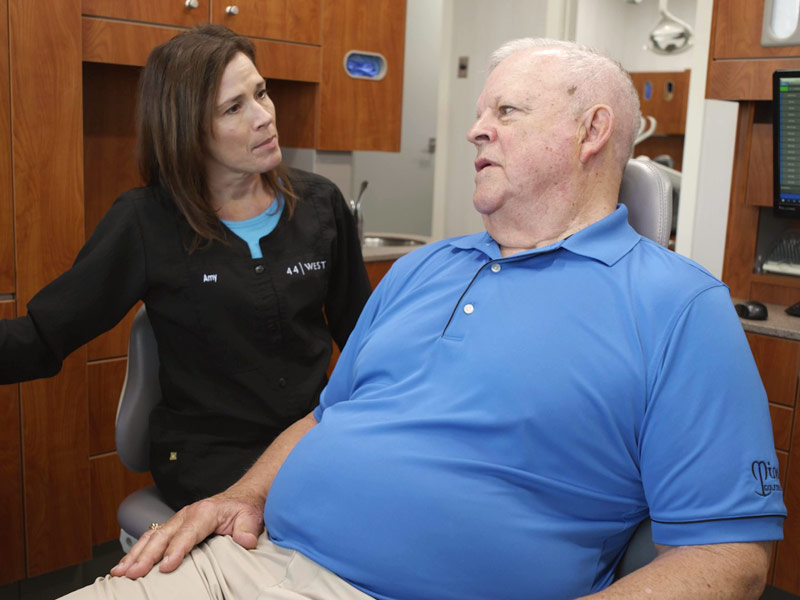44 West Post-Treatment Instructions: Tooth Extraction

FOR THE NEXT 48 HOURS:
NO RINSING, SPITTING, SMOKING, OR DRINKING THROUGH A STRAW.
Also try to limit strenuous activity.
These actions can cause bleeding and slow down the healing process.
Smoking can increase the chances of an infection or a dry socket.
BLEEDING:
Minor bleeding is expected after tooth extraction and in most cases can be controlled with gauze alone. Some minor weeping is common and may persist for days. When this happens, a little bit of blood mixed with saliva can make it look like you are still bleeding when in fact this is a very normal process. If you notice pink spit for several days this is not cause for alarm.
Keep gauze on the area with biting pressure for 30 minutes. If needed, replace with new gauze every 30 minutes until the bleeding has subsided. If bleeding continues after two hours, use a moistened tea bag instead (the tannins in tea can help stop the bleeding. If true bleeding continues beyond several hours please contact our office.
SWELLING:
Many patients experience swelling after surgery. The swelling may increase for the first 48 hours before it begins to subside. Swelling may last for several days.
Use a wrapped ice pack on the face next to the surgical site. Keep it on for 15 minutes, then off for 15 minutes, and repeat as needed. On the third day, change to moist eat instead of cold.
DIET:
A soft diet is recommended for the first few days. Foods such as mashed potatoes, pasta, cottage cheese, soup, or scrambled eggs are great examples. Drink adequate water to stay well hydrated. You may resume a regular diet when it is comfortable, however it is a good idea to avoid crunchy foods such as popcorn, chips, or peanuts for 2 weeks after surgery.
ORAL HYGIENE:
After 24 hours, you may begin rinsing GENTLY with warm salt water (1 tsp of salt in 8 oz. of warm water). Do this after meals and before bed as needed. Avoid alcohol-containing mouth rinses for the first week or so as it will burn.
SUTURES:
If dissolvable sutures were used, they will fall out on their own. This generally occurs in the first week after surgery, but timing varies from 3–10 days.
If non-dissolvable suture were used, you will be scheduled for removal.
BONE GRAFT:
If a bone graft material was placed, you may notice some gritty material in your mouth. This is nothing to worry about and should subside as healing occurs.
Avoid contacting this area with your toothbrush. For 3 weeks, use a cotton swab dipped in salt water to gently clean the site. Do this until the sutures are removed.
MEDICATIONS:
Take any medications as directed.
Prescription: Take any prescription medications as directed.
Over The Counter: Research has shown that an alternating regimen of Tylenol and Ibuprofen is one of the most effective ways of managing pain after tooth extraction. You begin by taking a dose of ibuprofen, followed by a dose of Tylenol 3 hours later, and continuing this process as needed. You may do this for the first 5 days. The recommended dosages are:
- 600mg ibuprofen (THREE 200mg pills) every 6 hours
- 500mg Tylenol (ONE extra-strength pill) every 6 hours
If you are unable to take one of the above medications, just take the one you are able to tolerate every 6 hours.
QUESTIONS?
We are here for you! Feel free to call with any questions or if any unusual symptom develop.

